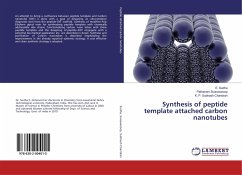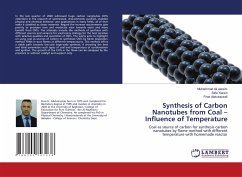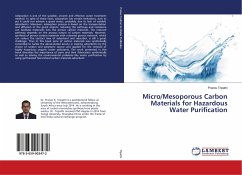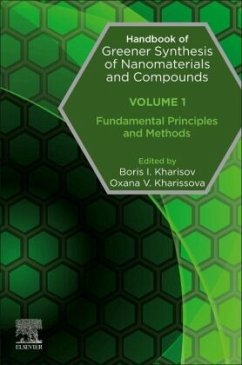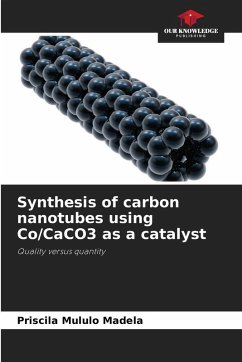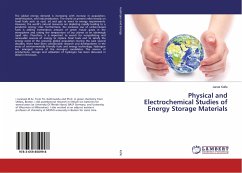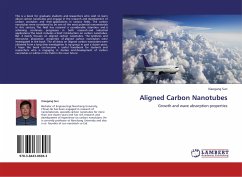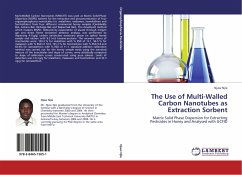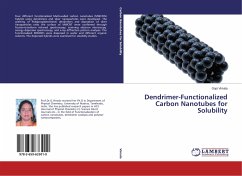
Carbon Nanotubes and Carbon Nanospheres
An overview on Synthesis, Characterization, properties, and their applications
Versandkostenfrei!
Versandfertig in 6-10 Tagen
40,99 €
inkl. MwSt.

PAYBACK Punkte
20 °P sammeln!
This book describes about carbon nanoparticles which are unique class of materials with excellent chemical, electrical, mechanical, thermal and optical properties. They possess a wide range of specialities such as, thermal conductivity (-2800-6000 W/m/K), extraordinary strength (-100-200 GPa), charge carrying capacity (electronic transport). In addition, carbon nanoparticles having broad applications in electronics, capacitors, advanced batteries, water technologies, catalysis and biomedical sciences (Drug delivery, biomedical imaging, tissue engineering). CNTs and CNSs are generally synthesiz...
This book describes about carbon nanoparticles which are unique class of materials with excellent chemical, electrical, mechanical, thermal and optical properties. They possess a wide range of specialities such as, thermal conductivity (-2800-6000 W/m/K), extraordinary strength (-100-200 GPa), charge carrying capacity (electronic transport). In addition, carbon nanoparticles having broad applications in electronics, capacitors, advanced batteries, water technologies, catalysis and biomedical sciences (Drug delivery, biomedical imaging, tissue engineering). CNTs and CNSs are generally synthesized by adopting sophisticated methods such as, arc discharge evaporation method, laser ablation method, chemical vapour deposition and thermal methods. Among these, solvothermal and hydrothermal methods are commonly preferred due to their user-friendly operations and cost-effective uses. Carbon Nanotubes and Carbon spheres features, including thermal stability and energy (H2) storage, are discussed in the book. Characterization methods of CNTs and CNSs by XRD, SEM, TEM, FTIR, Raman spectroscopy, Thermogravimetric and electrochemical analysis are discussed.



